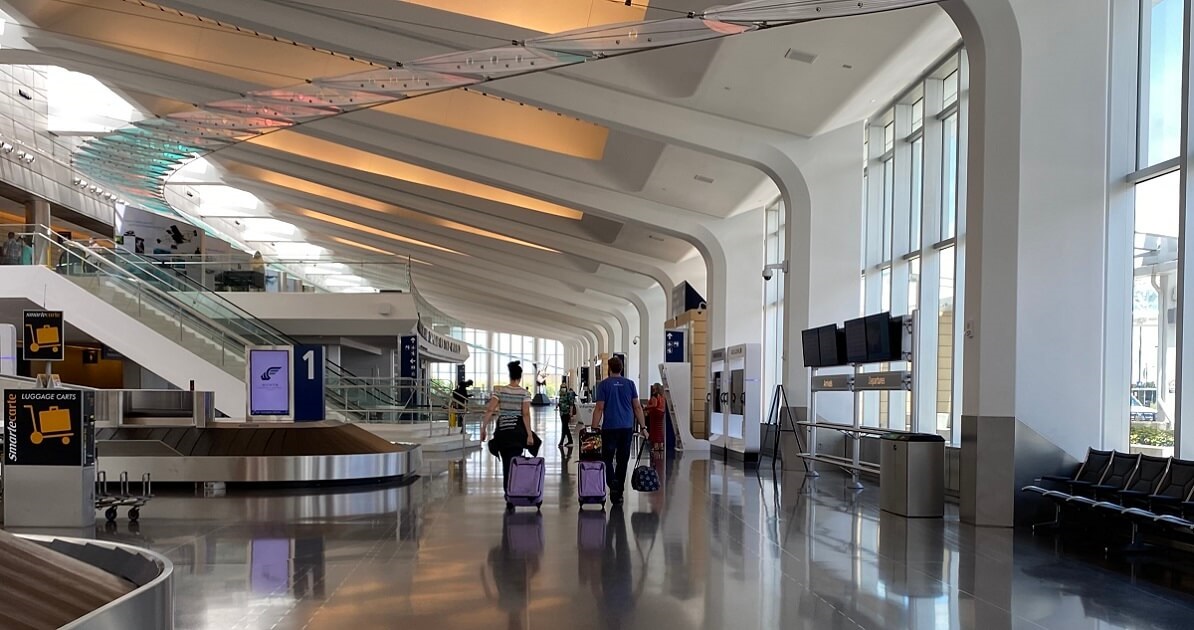Now that 2020 is over, it’s time to look back at the impact Covid-19 had on ICT. After setting a record year in 2019, the first two months of 2020 started strong, only to be cut short by the coronavirus pandemic. Last April, passenger traffic plummeted 95% at Wichita Eisenhower National Airport and around the U.S. Passenger traffic rebounded somewhat and ended the year down 55% compared to 2019.
Airlines and airports around the country worked quickly to protect the traveling public from the spread of COVID-19. Both airports and airlines have been utilizing science as a basis to guide health-driven safety decisions for the well-being of passengers, employees and crew. Multiple layers of protection have been implemented such as face-covering requirements, social distancing in the terminal and in airport restaurants, increased disinfection, the use of high-efficiency filtration in ventilation systems and more. The TSA has implemented a touchless screening process and wipes down screening bins after each use. Airlines have also changed boarding procedures, limited inflight beverage and snack services, and some airlines capped loads at 60%. COVID-19 has changed the way we travel and some of those changes may have lasting effects, just as 9/11 did.
The holiday season boosted demand, reaching a high of 1,878 passengers on Dec. 27. However, December enplaned passengers declined 56%, to 33,413 compared to 76,312 in Dec. 2019. For the year, 395,344 passengers departed ICT compared to 876,640 in 2019, a decrease of 55%. Total passengers in 2020 were 791,203 compared to 1,749,906 in 2019, which was a record year. The last time this few passengers flew from ICT was in 1973.

In the U.S., TSA screened 324 million passengers throughout its airport security checkpoints in 2020, down from 824 million passengers screened in 2019, a decline of 62% as air travel slowed sharply during the coronavirus pandemic.
Airlines have adjusted to the soft travel demand by reducing capacity and in some markets, have dropped destinations altogether. ICT did not lose any destinations but did have some suspensions of service. ICT had 29% fewer flights and 31% fewer seats in 2020 compared to a 37% reduction in domestic flights and seats. Average daily flights dropped from a high of 34 in March to only 15 in May. December weekday departures averaged 20.

Wichita’s airlines have adjusted to the lower demand by utilizing more large regional jets and fewer narrow-bodies. Southwest, Allegiant and Frontier are the only carriers operating narrow-body aircraft at ICT. Airline schedules are now published on a short-term basis as the majority of bookings are within 60 days. Since there is very little business travel, airlines are readjusting schedules to meet leisure travel demand to warm climates in the southeast, and to mountains and national parks.
The only bright spot has been outgoing air cargo, which increased 13% in December whereas incoming cargo fell 15%. For the year, outgoing cargo increased 5% and incoming cargo down 6%.
For the year, concession revenue fell 57%, rental car revenue fell 48%, and parking revenue fell 58%. Aviation activity reports can be found under Airport Business.
